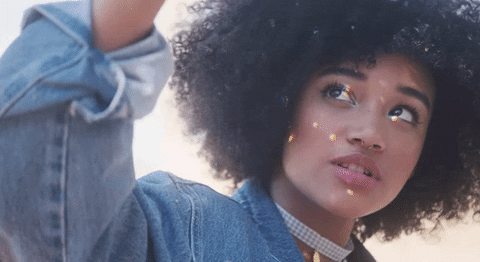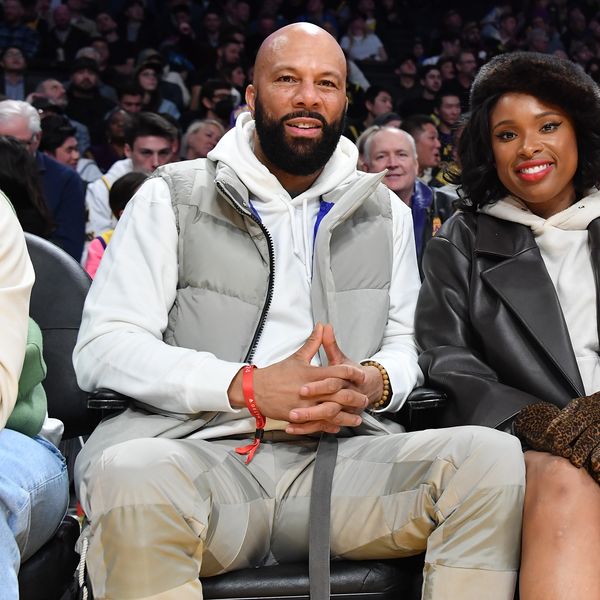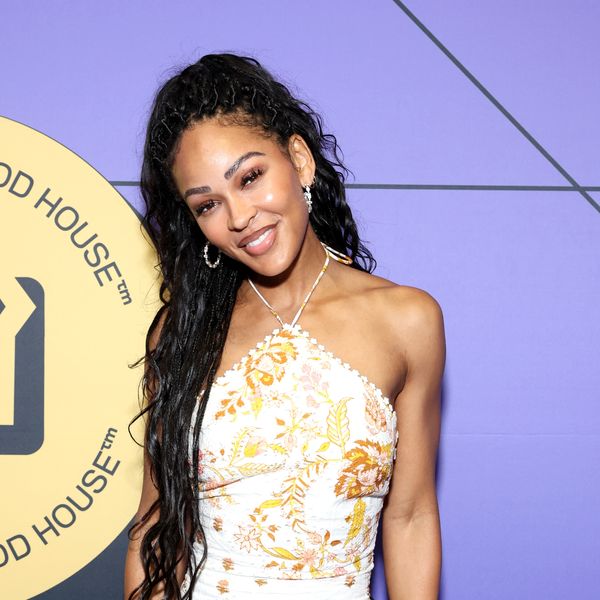
Amandla Stenberg Checked Her Privilege In The Best Way
Amandla Stenberg recently discussed dropping out of the auditions for Black Panther so that the opportunity could be afforded to a darker-skinned candidate more befitting to the role.
Her admission makes a powerful statement about representation in the film industry.
It's no secret that Hollywood has a habit of white-washing characters and casting lighter-skinned actors for roles over their darker-skinned counterparts. The actress' bold move is particularly significant because Black Panther introduces a fictional African kingdom called Wakanda that represents "black excellence that was never interrupted by colonialism." Stenberg's decision not to take the role was based on her biracial identity and the inaccuracy she felt it would represent in the film's overall theme.
In an interview at the TIFF Next Wave Festival in Toronto, Stenberg said:
"One of the most challenging things for me to do was to walk away from 'Black Panther.' I got really, really close and they were like, 'do you want to continue fighting for this?' And I was like, 'This isn't right.'"
"These are all dark skin actors playing Africans and I feel like it would have just been off to see me as a biracial American with a Nigerian accent just pretending that I'm the same color as everyone else in the movie."
The 19-year-old actress won her way into our hearts in the Hunger Games trilogy and Everything, Everything, and continues to stay relevant in social activism by bringing national attention to issues like colorism and cultural appropriation. She added:
"That was really challenging, to make that decision, but I have no regrets. I recognize 100 percent that there are spaces that I should not take up and when I do take up space it's because I've thought really, really critically about it and I've consulted people I trust and it feels right."
Americans love black culture, but do we really love black people?
When I was in elementary school, my sister got cancer and my parents and I moved from Texas back to Baton Rouge to help her through chemotherapy; culture shock is an understatement. I went from a school where I was the only black kid in my class to one that was predominantly black.
I remember I came home from school my first day, upset because my classmates told me that I was mixed, light-skinned, and talked like a white girl. Today, it sounds silly I know, but then I was completely devastated; honestly, because I didn't know what being "mixed" meant and I couldn't understand why being "light-skinned" or talking like a white person were bad things. My family has every shade of brown that there is, so I wasn't familiar with the terms "light skinned" or "dark skinned," we were all just black.
It wasn't until I got older that I began to recognize my privilege as a light-skinned African-American woman. I noticed that my friends and classmates who were more brown-skinned were treated differently by boys and even our teachers. Though the plight of any woman is worth reverence, I began to realize that I was afforded more opportunities than my friends with brown skin.
The recent height of racial tension in our society should also urge us to confront the transgressions that we commit against one another in the black community.
Stenberg reminds us that empowerment means seeking equal opportunity for all women. Not just ourselves.
She declined the opportunity to be a part of one of this year's top-grossing and culturally impactful films to make a bigger statement about the way colorism is perpetuated in film.
"I'm just someone who cannot fake it. I can only do something with my full heart invested or just not do it at all. I still am really young and it's not a race. I didn't feel like I had to be working all the time just to prove that I could work. I still have a lot of time. You don't have to force your career to happen all at once."
Amandla Stenberg makes us all question what we can do as individuals to create a better life for society as a whole. She reminds us to check our privilege and pay it forward because personal advancement cannot be truly valuable until there is a level playing field.
Featured image via Giphy
Taylor "Pretty" Honore is a spiritually centered and equally provocative rapper from Baton Rouge, Louisiana with a love for people and storytelling. You can probably find me planting herbs in your local community garden, blasting "Back That Thang Up" from my mini speaker. Let's get to know each other: @prettyhonore.
This article is sponsored by Hulu.
UnPrisonedhas returned for its highly anticipated second season, delving deeper into the complex dynamics of the Alexander family.
The series premiere comes a year after its debut season garnered rave reviews from fans and critics and earned record-breaking ratings for Hulu's Onyx Collective brand. UnPrisoned's success can be attributed to its raw, relatable themes and comedic appeal.
Inspired by creator Tracy McMillan's life, the show follows Paige (Kerry Washington), a therapist and single mother whose life takes an unexpected turn when her father, Edwin (Delroy Lindo) --who was released from prison-- moves in with her and her teenage son, Finn (Faly Rakotohavana).
Throughout UnPrisoned's first season, viewers witnessed how Edwin's incarceration deeply affected Paige's life and relationships. In the series, Paige unpacks her trauma through interactions with her inner child and her online followers. Meanwhile, Edwin is overcoming specific struggles with his own past that led to his life of crime, including a dysfunctional upbringing and his mother's arrest. As the Alexanders attempt to reconcile, new challenges arise.
This new season promises to further explore their unconventional family dynamic. Here are several compelling reasons why season two of UnPrisoned should be on everyone's watchlist.
The Alexander Family Life Is Still In Shambles
UnPrisoned's second season resumes where the series left off, with Paige grappling with the fallout from her troubled therapy practice and Edwin navigating life independently after moving out. Meanwhile, Finn faces his own challenges. The teenager is battling anxiety and seeking information about his father—a topic Paige avoids discussing.
The Alexander Family Are Attending Therapy To Resolve Their Underlying Issues
Amid the chaos in their lives, the Alexander family decides to mend their bond by confronting their past traumas. They seek professional help and attend therapy sessions with a “family radical healing coach,” played by John Stamos, a new cast member. This collective effort aims to unravel the complexities of their shared history and strengthen their relationships.
The process of unraveling each character's internal conflicts and their potential impact on future relationships may clash with Paige's textbook therapy approach. While Paige is used to being in the therapist's seat in both career and family, this forces her into the unfamiliar role of a patient during therapy sessions. This shift would compel her to look in the mirror and try a radically different approach.
The Alexander Family Learned A Big Lesson During A Therapy Session
In therapy, the Alexanders are tasked with addressing their individual traumas to salvage their remaining relationships. One of the family therapist’s eccentric suggestions was an exercise involving a family wrestling match. During this session, Paige faces tough questions about her refusal to share information about Finn's father.
While it's unclear whether this scene is reality or fantasy, the image of the family duking it out in the ring certainly makes for hilarious yet compelling television.
Paige Tries Dating Again Following Failed Relationships
Amid her life's chaos, Paige decides to step back into the dating field. However, her many attempts have left her with mixed results. The dating apps have turned out to be a fail, and an outing with her ex Mal (Marque Richardson), who is also her father's parole officer, doesn’t go quite as expected after he brings an unexpected guest – his new girlfriend.
The situation takes an awkward turn when Mal's new partner learns why the former couple split, partly due to Paige's self-sabotage.
UnPrisoned Is A Perfect Balance Of Comedy And Drama
As a dramedy, UnPrisoned takes a comedic approach to its heavy subjects. The show takes us on a ride with Paige's dating misadventures and navigating a friendship with her ex.
Other lighthearted moments include Edwin's attempts at CPR based on online videos and, of course, the antics of the Alexander family's unconventional new healing coach.
The second season of UnPrisoned is now available on Hulu.
UnPrisoned | Season 2 Trailer | Hulu
Feature image courtesy
Actor Jessie T. Usher reveals his secrets for maintaining his physical appearance while filming Amazon Prime's The Boys.
The series, which spans four seasons, follows vigilantes as they battle corrupt superheroes. In The Boys, Usher portrays Reggie Franklin, also known as A-Train, a superhero with incredible speed.
During a recent Men's Health magazine interview, the 32-year-old spoke about his diet and workout regimens. These routines help Usher stay in shape for the show's stunt work, which involves intense cardio to match his character's super-speed abilities.
In the discussion, he revealed his workout regimen consists of resistance training and cardio. On rest days, the Shaft star incorporates yoga and stretching into his routine.Jessie On What He Eats In a Day
Regarding his diet, Usher shared he typically eats three meals daily with minimal variations. He begins each day by hydrating and waiting an hour or two before breakfast. On production days for The Boys, Usher opts for eggs with herbs and seasonings, accompanied by fruit.
The Dangerous Lies actor keeps it light for lunch with protein-rich options like quinoa bowls or salads with lentils, chicken, and vegetables from CAVA. Dinner is his heartiest meal, featuring chicken and fish (particularly sea bass or salmon), after which he refrains from eating for the rest of the night.
Usher focuses on protein intake for all his meals rather than counting macro calories to support muscle growth. He boosts his protein with peanut butter shakes. While maintaining a disciplined diet, The Almost Christmas star allows himself occasional indulgences like Funyuns or Nutter Butters. To round out his health regimen, Usher takes daily vitamins.
Jessie On His Diet And Workout Routine For "The Boys"
When asked about adjusting his diet or workout routine for his role in The Boys, Usher explained that his health-conscious lifestyle eliminates the need for significant changes.
“Honestly, no. Because by the time I got to The Boys I was already health conscious. Very much aware of what I was putting in my body and how,” he said.
Regarding his workouts, Usher revealed he tailors his routines to include more diverse cardio exercises. This approach ensures he's physically prepared for the scenes he shoots for the show.
“A day of working out for The Boys is a little bit different. I feel like I added more variations of cardio work,” he stated. “When [you’re shooting] you just have no idea what they’re about to throw at you. I just want to be ready for all of those challenges, especially the cardio things. I just wanted to have the endurance to be able to get through whatever type of scene that I would possibly be shooting.”
Season four of The Boys is now streaming on Amazon Prime.
Everything ‘The Boys’ Star Jessie T Usher Eats In a Day | Eat Like | Men's Health
Let’s make things inbox official! Sign up for the xoNecole newsletter for daily love, wellness, career, and exclusive content delivered straight to your inbox.
Feature image by Phillip Faraone/Getty Images for Paramount Pictures











